Exploring the differences between Copywriting vs. Content Marketing illuminates distinct approaches in crafting and disseminating messages to target audiences. Copywriting focuses on concise, persuasive language aimed at eliciting a specific action or response from the reader. In contrast, content marketing emphasizes providing valuable, informative content to build relationships and foster engagement with the audience. While copywriting aims for direct response, content marketing seeks to establish credibility and trust over time. Transitioning from copywriting to content marketing involves shifting from a focus on persuasion to a focus on education and relationship-building. Both strategies play crucial roles in modern marketing efforts, yet they diverge in their tactics and objectives.
Get A Free Estimate on Website DesignUnderstanding Copywriting and Content Marketing
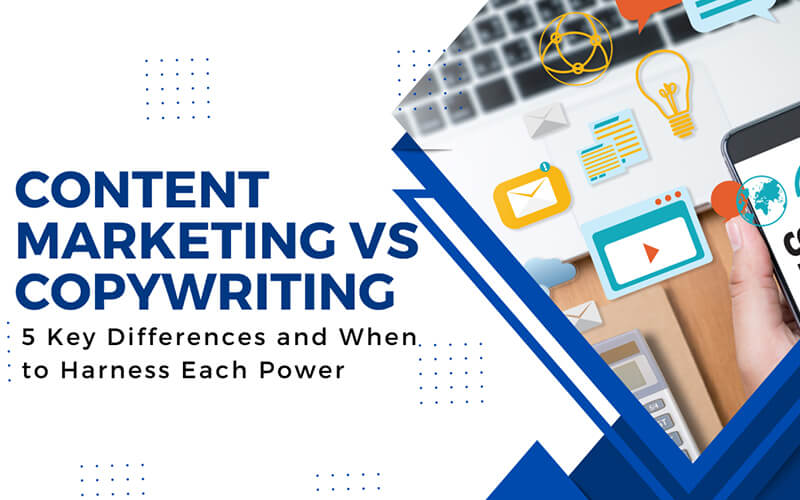
Understanding the distinction between Copywriting vs. Content Marketing is crucial for crafting effective marketing strategies. In essence, copywriting focuses on creating compelling and concise messages aimed at driving specific actions, such as making a purchase or signing up for a service. On the other hand, content marketing involves creating valuable and informative content to engage and nurture relationships with the audience. While copywriting is more direct and persuasive, content marketing aims for long-term engagement and brand loyalty. By understanding the nuances between copywriting vs. content marketing, marketers can strategically deploy each approach to achieve their desired outcomes.
The Purpose and Scope of Copywriting vs. Content Marketing

Copywriting vs. Content Marketing serve distinct yet complementary purposes within the realm of digital communication. While copywriting focuses on crafting concise, compelling messages to drive immediate action, content marketing takes a more holistic approach by delivering valuable information to nurture long-term relationships with the audience. Copywriting emphasizes persuasion, aiming to prompt specific responses such as purchases or sign-ups, whereas content marketing prioritizes education and entertainment to engage and retain customers over time. In copywriting, every word counts, aiming to captivate the reader attention swiftly and decisively, whereas content marketing employs storytelling and informational content to establish credibility and trust. Transitioning from copywriting to content marketing, businesses extend their messaging beyond direct sales pitches, leveraging various content formats and channels to provide ongoing value to their audience. Active engagement with the audience through copywriting vs. content marketing reflects the dynamism and adaptability required in today digital landscape.
Get A Free Estimate on Website DesignDistinguishing Objectives and Audience Engagement

In distinguishing objectives and audience engagement between Copywriting vs. Content Marketing, its crucial to understand their distinct purposes. Copywriting aims for direct response, persuading audiences to take immediate action, while content marketing focuses on building relationships and trust with the audience over time. Copywriting grabs attention with concise and persuasive messaging, prompting quick decisions, whereas content marketing educates and entertains, fostering long-term engagement. Transitioning between these strategies requires a nuanced approach; copywriting emphasizes urgency and persuasion, whereas content marketing prioritizes authenticity and value. In both disciplines, active voice strengthens messaging, compelling audiences to act or engage.
Get A Free Estimate on Website DesignCrafting Messages Persuasion vs. Education

Crafting messages in copywriting involves employing persuasive techniques to compel the audience towards a specific action, such as making a purchase or subscribing to a service. In contrast, content marketing focuses on educating the audience, providing valuable information that establishes trust and authority within the industry. In copywriting, the emphasis lies on creating urgency and desire through enticing language and compelling calls-to-action. Content marketing, on the other hand, prioritizes delivering relevant and useful content to the audience, fostering long-term relationships and brand loyalty. While copywriting aims to drive immediate conversions, content marketing seeks to build a strong foundation for sustained engagement. Therefore, understanding the distinction between persuasion and education is crucial for effectively leveraging the power of Copywriting vs. Content Marketing in reaching and engaging with the target audience.
Creating Compelling Copy Persuasive Techniques vs. Informative Content
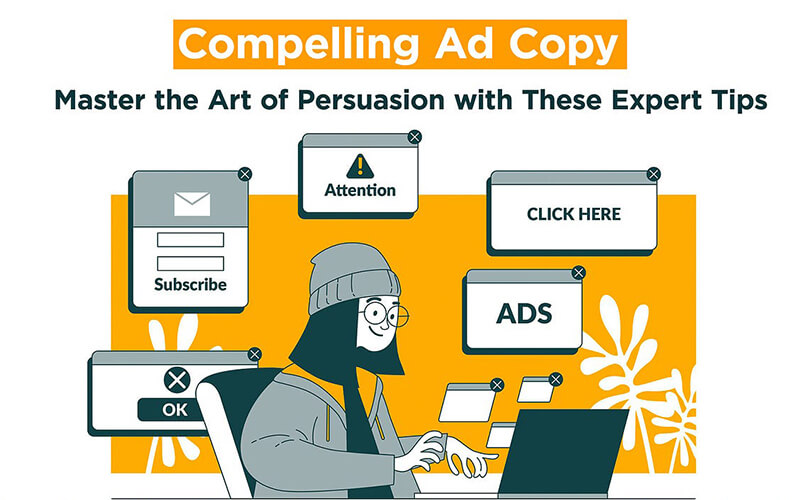
In the realm of marketing, crafting compelling copy is essential for both Copywriting vs. Content Marketing strategies. While copywriting focuses on persuasive techniques to drive action, content marketing leans towards informative content to educate and engage audiences. In copywriting, active voice commands attention and prompts immediate response, employing tactics like emotional appeals and strong calls-to-action. Conversely, Content Marketing prioritizes delivering value through informative and engaging content, establishing credibility and fostering long-term relationships with the audience. Transitioning from persuasive copywriting to informative content marketing requires a shift in tone and approach, yet both play crucial roles in capturing and retaining audience interest.
Get A Free Estimate on Website DesignChannels and Formats Optimization Strategies

When considering channels and formats optimization strategies, its crucial to understand the distinct approaches of Copywriting vs. Content Marketing. Copywriting focuses on concise, persuasive messaging tailored for specific platforms, such as advertisements or product descriptions, aiming to prompt immediate action. In contrast, content marketing aims for long-term audience engagement through informative and valuable content, often distributed via blogs, social media, or email newsletters. Transitioning between these strategies requires a keen awareness of audience preferences and behaviors. By actively analyzing data and adapting content to suit each channel unique requirements, marketers can effectively maximize the impact of their messaging.
Tailoring Content for Specific Platforms Copywriting in Ads vs. Content Marketing on Blogs
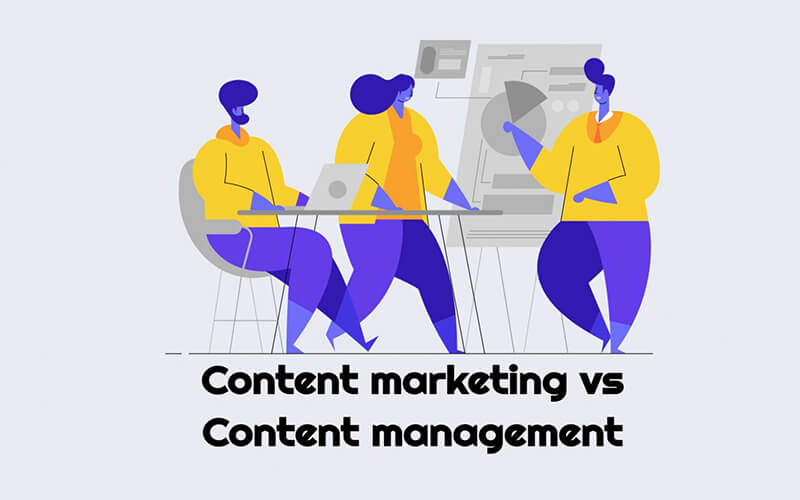
Tailoring content for specific platforms involves adapting the tone, style, and format to resonate with the audience effectively. In copywriting for ads, concise and compelling language is paramount, aiming for immediate action from the viewer. Copywriting focuses on crafting persuasive messages that drive conversions. Conversely, content marketing on blogs prioritizes informative and engaging content that educates and entertains the audience, fostering a long-term relationship with the brand. Content marketing aims to build trust and authority within a niche through consistent and valuable content creation. Transitioning from copywriting to content marketing requires a shift from direct response goals to nurturing audience relationships. By understanding the nuances of each approach, marketers can strategically leverage both Copywriting vs. Content Marketing to achieve their objectives.
Get A Free Estimate on Website DesignMeasuring Success Conversion Metrics vs. Engagement Metrics

In the realm of Copywriting vs. Content Marketing, measuring success hinges on distinct metrics: Conversion Metrics versus Engagement Metrics. Copywriting primarily focuses on driving immediate actions, such as clicks or purchases, through compelling messaging. Metrics like click-through rates and conversion rates are paramount in assessing the effectiveness of copy. On the other hand, Content Marketing aims to cultivate long-term relationships with the audience, emphasizing engagement metrics like likes, shares, and comments. While copywriting prioritizes quantifiable outcomes, content marketing prioritizes building brand loyalty and trust. Transitioning between these metrics, businesses gain a holistic view of their marketing efforts, aligning short-term gains with long-term brand building.
Get A Free Estimate on Website DesignContent Marketing By Our Software House

At our software house, we focus on content marketing to help businesses grow. Content marketing means creating helpful and interesting information for people to read or watch. We write blogs, make videos, and share useful tips on social media. But that’s not all! We also offer SEO Training to make sure that the content we create gets found easily on the internet. With SEO training, businesses can learn how to make their websites show up higher in search results, bringing more visitors and customers.
Get A Free Estimate on Website Design

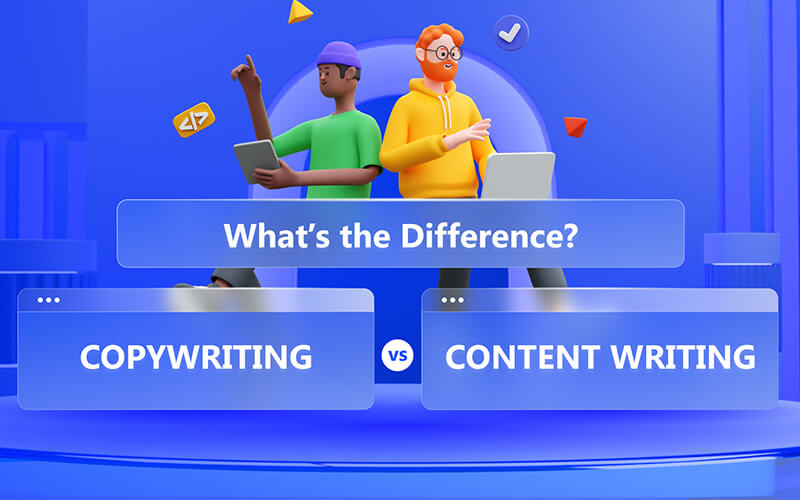


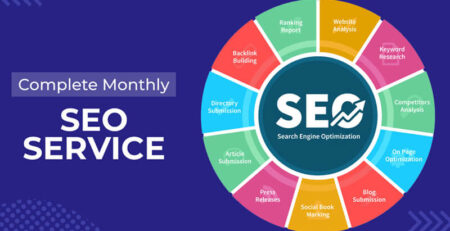

Leave a Reply